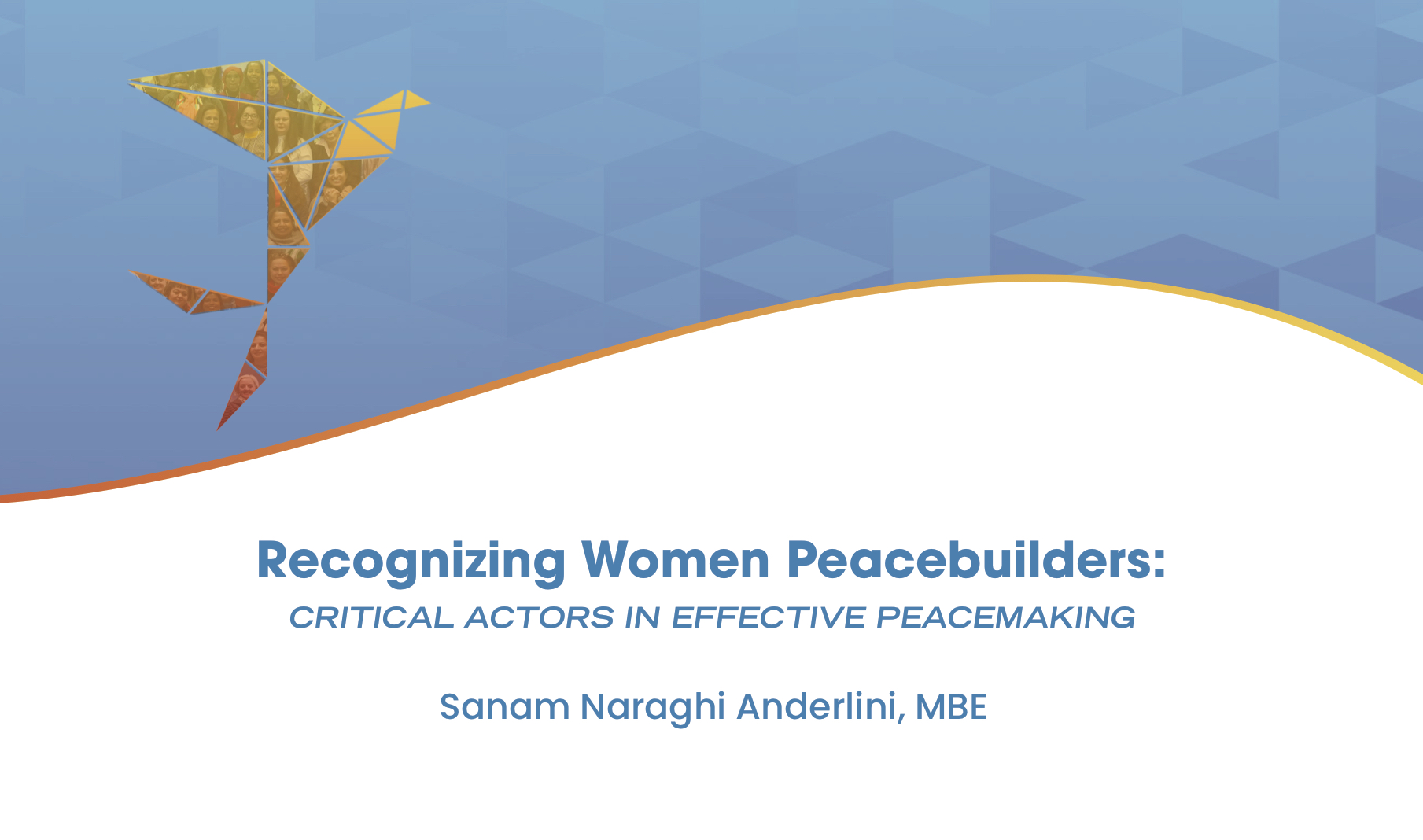
How do we achieve a Better Peace? By including civil society, especially women, in peace negotiations and peace building and ensuring gender sensitivity in all processes.
How do we make the Peace sustainable? By implementing peace agreements and ensuring that thematic topics addressed, such as transitional justice, devolution, and security sector reform are gender sensitive and inclusive.
How is ICAN contributing? We develop pragmatic guidance, such as animations, discussion guides and trainings for the inclusion of women peacebuilders and offer proactive steps to broaden participation.
Gender Responsive Ceasefires
Explores why gender responsiveness and inclusivity matter in ceasefire agreements and processes, and how to ensure this in practice.
Gendered Community Policing
Explores why gender sensitivity and inclusivity matter and how to pay attention to this in community policing initiatives.
Gendered Transitional Justice
Explores the various components of transitional justice and offers five practical steps to a gender sensitive and inclusive process.
Gendered Devolution
Explores why gender sensitivity and inclusivity in devolution processes matter and how it can be done in practical ways.
Gendered Peace Negotiations
Presents a four-part framework for inclusive mediation, offers proactive steps to overcome common barriers.
Practical Guidance
Practical guidance documents intended to inform governments, international organizations, and civil society
Gender-Responsive and Inclusive Constitution-Drafting
10 Steps to Ensure a Gender-Responsive and Inclusive Constitution-Drafting Process is a practical guidance document intended to inform governments, international organizations, and civil society involved in constitution drafting processes Click here for more.
Gender Responsive Transitional Justice Processes
10 Steps to Ensure Gender Responsive Transitional Justice Processes is a practical guidance document intended to inform governments, international organizations, and civil society involved in TJ processes Click here for more.
Inclusion in Ceasefire Agreements
10 Steps to Ensure Gender Responsive Processes & Ceasefire Agreements is a practical guidance document intended to inform governments, international organizations, and civil society facilitating local, national and regional ceasefire negotiations. Click here for more.
Increased Participation in Peace-Keeping Missions
10 Steps to Increase Women’s Participation in Peacekeeping and Reduce Sexual Exploitation and Abuse is intended to put forth concrete recommendations from women-led civil society to improve community security and eradicate Sexual Exploitation and Abuse (SEA) from peacekeeping missions through effective recruitment and deployment of women. Click here for more.
Sustainable Prevention of Sexual Violence in Conflict
Drawing on two decades of research and practice by women-led organizations specializing in women, peace and security issues and as first responders to sexual violence in fragile contexts, Five Steps for Sustainable Prevention of Sexual Violence in Conflict is intended to inform governments and policymakers committed to effective prevention of sexual violence in conflict (PSVI). Click here for more.
The Better Peace Tool
The Better Peace Tool explores the history and evolution of peacemaking in modern times. It considers six common barriers to inclusion and how to overcome them. And it presents a four-part framework for the inclusion of women peacebuilders, offering proactive steps to broaden participation.
Barriers to Inclusion
The inclusion of women peacebuilders in peace processes is a crucial step toward a transformative approach to peacemaking, yet it remains elusive in practice.
Click here to explore steps to overcome the six common barriers to inclusivity.
Guidance Areas for a Better Peace – Four-Part Framework
Proactive Steps to Realize Inclusion
“The BPT is outstanding…a wealth of good information, and a very accessible guide for practitioners…really the best comprehensive guide of its kind drawing on widespread evidence from across the geographic spectrum.”
— Ambassador Don Steinberg, President and CEO of World Learning and Former US Envoy to Angola



